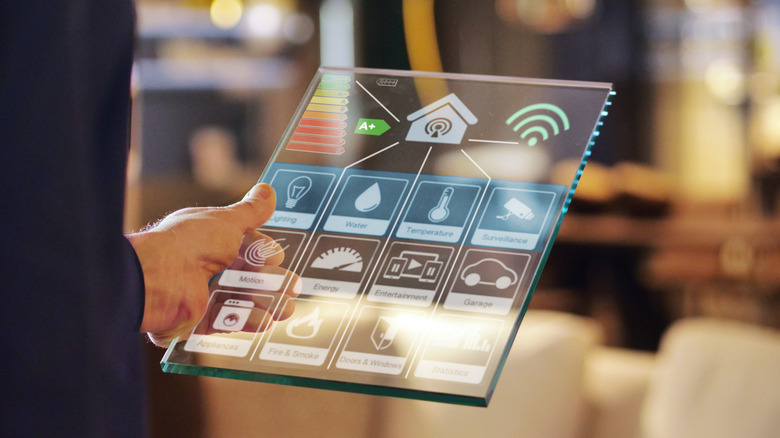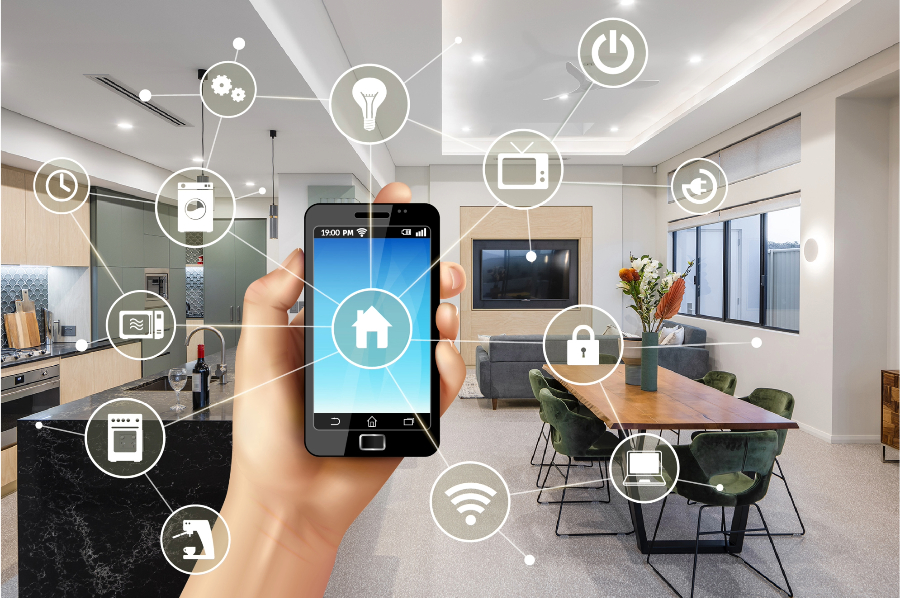In today’s world, technology is rapidly transforming the way we live. One of the most exciting advancements is the integration of smart home technology. But how do these smart homes save money for homeowners? This question is at the forefront of many minds as people look to modernize their living spaces and cut costs.
Smart homes not only offer convenience and comfort but also provide significant financial savings. By investing in smart devices and systems, homeowners can cut down on energy usage, lower utility bills, and even increase the value of their property. In this article, we’ll explore various ways smart homes can save you money and why they’re a worthwhile investment for anyone looking to optimize their home.

Understanding Smart Homes
What is a Smart Home?
A smart home is a residence equipped with devices that can be controlled remotely via a smartphone, computer, or voice command. These devices include thermostats, lighting, security cameras, and more. The goal of these technologies is to improve efficiency and convenience, ultimately leading to cost savings.
Key Components of Smart Homes
Some essential components of smart homes include:
- Smart Thermostats: These devices allow you to control your heating and cooling systems remotely, optimizing energy usage and reducing costs.
- Smart Lighting: Automate your lighting to turn off when not in use, saving electricity.
- Security Systems: Smart cameras and alarms enhance security without constant monitoring costs.
- Home Automation Hubs: Centralize control of your smart devices for seamless integration.
How Smart Homes Save Money
Energy Efficiency
One of the primary ways smart homes save money is through energy efficiency. By using devices like smart thermostats and automated lighting, homeowners can significantly reduce their energy consumption. Smart thermostats learn your schedule and adjust temperatures accordingly, ensuring that energy is not wasted when no one is home.
Reduced Utility Bills
With energy-efficient systems, smart homes can lead to lower utility bills. By cutting down on unnecessary energy use, homeowners can save a substantial amount of money each month. For example, geofencing technology can adjust settings based on your location, ensuring that your home is always running efficiently.
Water Conservation
Smart water systems can also help in reducing water usage. Automated sprinklers and leak detection systems ensure that water is used efficiently, preventing wastage and lowering your water bill.
Enhanced Security
Investing in smart security systems can also save money by potentially lowering insurance premiums. Many insurance companies offer discounts for homes equipped with advanced security features, recognizing the reduced risk of theft or damage.
Long-Term Savings
Increased Property Value
Homes equipped with smart technology often have higher resale values. As more buyers look for modern, energy-efficient homes, properties with integrated smart systems become more attractive, potentially leading to a higher sale price.
Cost-Effective Upgrades
Upgrading to a smart home doesn’t have to break the bank. Many smart devices are available at various price points, allowing homeowners to start small and gradually build a fully automated home.
Making the Transition to a Smart Home
Choosing the Right Devices
When transitioning to a smart home, it’s crucial to select devices that align with your lifestyle and budget. Start with essential items like a smart thermostat or automated lighting, then expand your system over time.
Installation and Setup
Many smart devices offer easy installation, allowing homeowners to set up systems without professional help. However, for more complex integrations, consider hiring an expert to ensure everything functions smoothly.
Conclusion
In conclusion, the question of how smart homes save money is answered through various avenues of energy efficiency, reduced utility bills, and enhanced security. By investing in smart technology, homeowners can enjoy immediate financial benefits and long-term savings. As technology continues to evolve, the potential for saving money with smart homes will only grow, making them a smart investment for the future.

FAQ
Are smart homes expensive to set up?
While initial costs can vary, starting small with essential devices can make the transition affordable. Long-term savings on utility bills often offset setup costs.
How do smart homes help with security?
Smart security systems enhance home safety with features like cameras, alarms, and remote monitoring, which can also lead to reduced insurance premiums.
Can smart homes really reduce energy use?
Yes, smart homes optimize energy use with technologies like smart thermostats and lighting, significantly reducing energy consumption and costs.





